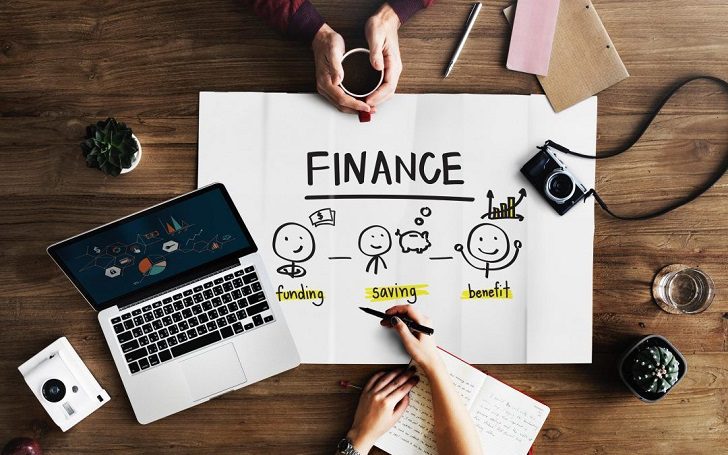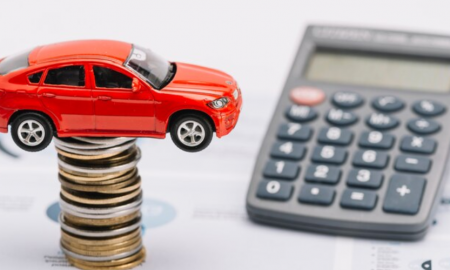
Tips On Getting Financially Organized

Money management and learning how to get the most out of every dollar is key to being successful because it allows you to focus on what is truly important in life. Leaving financial concerns behind means having everything under control. You can liberate precious time and vitality so you can get on with living! There are many benefits to organizing your possessions. Even then, it’s tough to move into action until the many benefits of getting rid of clutter reveal themselves:
Organization reduces stress
Even if you are unaware of it, clutter can negatively impact your health by raising your stress levels. It might be difficult to distinguish between clutter and non-clutter, as it can take various forms. Spend time sorting through everything and deciding what to keep and what to discard. By organising your living areas, you may reduce your housekeeping by 40%.
Derek Goodman/ Getty Images | You have big plans to launch a business, but something is holding you back
Organization promotes a healthier diet
Being organised enables you to plan and prepare nutritious meals throughout the week. When your meals and snacks are prepared in advance, you are less likely to make bad nutritional decisions. Consider placing candies, cereals, and other snackable items in little sandwich bags or containers. This might help you decrease clutter and manage your portion sizes.
Organized people clean less
Decluttering and arranging your home removes objects, leaving you with less to clean (and less to keep track of). Consider that an empty counter is considerably easier and quicker to clean. A smaller laundry pile requires less time to wash and fold. It is much simpler to sweep or vacuum a clean floor.
How to become organised?

Atlantafed/ Getty Images | Make this the year you accomplish your financial goals by implementing these financial tips
A lack of structure may be as damaging to your finances as a financial shortage. Losing bills will cause late penalties, and neglecting to check your account balance might result in overdraft costs. The following measures can be your guide as you take a step towards maintaining control of your finances and saveing your money over time.
Shred old financial records
By shredding old documents, you can significantly reduce clutter. In general, ATM or credit card receipts that match your monthly statement and are not required for tax purposes may be shredded. Paycheck stubs are no longer required once you receive your annual W-2. Returns older than seven years are eligible for destruction. Additionally, you should shred expired credit cards and loan offers.
Create a Budget
After establishing a list of financial objectives and analysing your spending patterns, it is time to create a budget that reflects how you intend to spend your money. To create an effective budget, begin with a budget worksheet, on which you will compile all of your financial statements, record your sources of income, create a list of your monthly expenses, and make any necessary adjustments. Then, you will need to learn how to budget your annual spending and divide it into a monthly spending plan.
Pay your bills on time

Belvoir/ Getty Images | It is never too late to organize your finances.
Often, if you pay late, then you get billed for late fees. Luckily, there is a quick and easy way to ensure that you never miss a bill deadline again, and that’s with direct debits. Setting up direct debits will help with this and take away any stress, and you also sometimes even get discounts for paying in this way.
It doesn’t take long to set these up, and if you keep on top of your money by checking your bank statement each month so that you know the right amounts are being taken, you can easily see how much you need to live your life as well.
More in Wealth
-
`
When to Wax Before Vacation for the Best Results?
Planning a vacation involves a lot of preparation, and if waxing is part of that preparation, timing it right is crucial....
September 7, 2024 -
`
How to Work Out the Interest Rate on a Car Loan?
When financing a car, understanding how to work out the interest rate on a car loan is crucial. Whether you’re eyeing...
August 28, 2024 -
`
How Realistic Is Getting a Mansion Without Having a Business?
Can you get a mansion without having a business? Well, it is a question many aspiring homeowners and investors ask themselves....
August 21, 2024 -
`
Who Is Chris Brown Dating in 2024? R&B Musician’s Romantic Past Exposed
Chris Brown has captivated audiences worldwide with his exceptional talent in music and dance. Naturally, his fans are curious about his...
August 13, 2024 -
`
How Long Does It Take to Buy a Car?
How long does it take to buy a car? This question might cross your mind if you are gearing up for...
July 30, 2024 -
`
Do You Get Paid the Extra Hour for Daylight Savings?
Daylight Saving Time (DST), that annual ritual of “springing forward” and “falling back,” often sparks a flurry of questions, especially for...
July 23, 2024 -
`
Learning Hunting-Related Safety Skills: 5 Fool-Proof Techniques
What is the best way of learning hunting-related safety skills? If you have ever asked yourself this question, you are in...
July 10, 2024 -
`
Has the Saudi Arabia Petrodollar Agreement With the U.S. Ended?
In the complex landscape of global finance, rumors and misinformation can spread faster than facts, leading to confusion about crucial economic...
July 4, 2024 -
`
The Tyson Foods Boycott Explained – The Rise of Online Activism
Tyson Foods, a powerhouse in the meat and poultry industry, is in hot water following its controversial decision to lay off...
June 25, 2024
















You must be logged in to post a comment Login